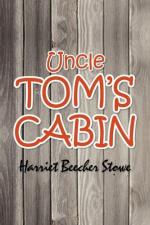|
This section contains 3,745 words (approx. 13 pages at 300 words per page) |

|
SOURCE: "American Fiction as Historical Evidence: Reflections on Uncle Tom's Cabin," in Forms of Uncertainty: Essays in Historical Criticism, University Press of Virginia, 1992, pp. 249-59.
In the excerpt that follows, originally from an essay published in 1971, Levin addresses Stowe's treatment of various social issues in Uncle Tom's Cabin from a historical perspective, concluding that Stowe should be commended for her often-overlooked, complex intellectual statement.
The historical document known as Uncle Tom's Cabin illustrates a truth that has been known to American historians ever since Washington Irving published Knickerbocker's History of New York: that contemporary experience of historians alters the evidence they study. My earliest recollection of that humbling but challenging truth is a high school history teacher's warning in 1939 that we ought not to choose Uncle Tom's Cabin as collateral reading, because (he said) Mrs. Stowe depicts slave owners and slavery too critically. Thirty years later I find...
|
This section contains 3,745 words (approx. 13 pages at 300 words per page) |

|


